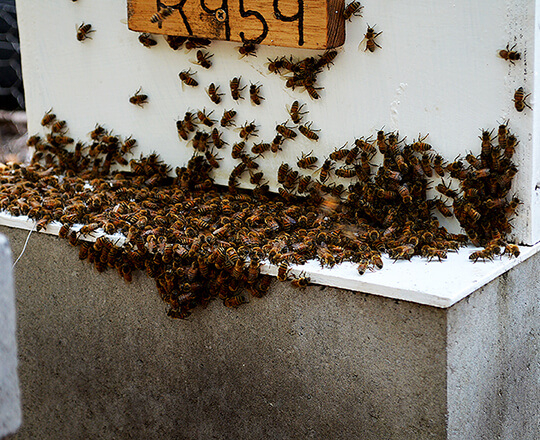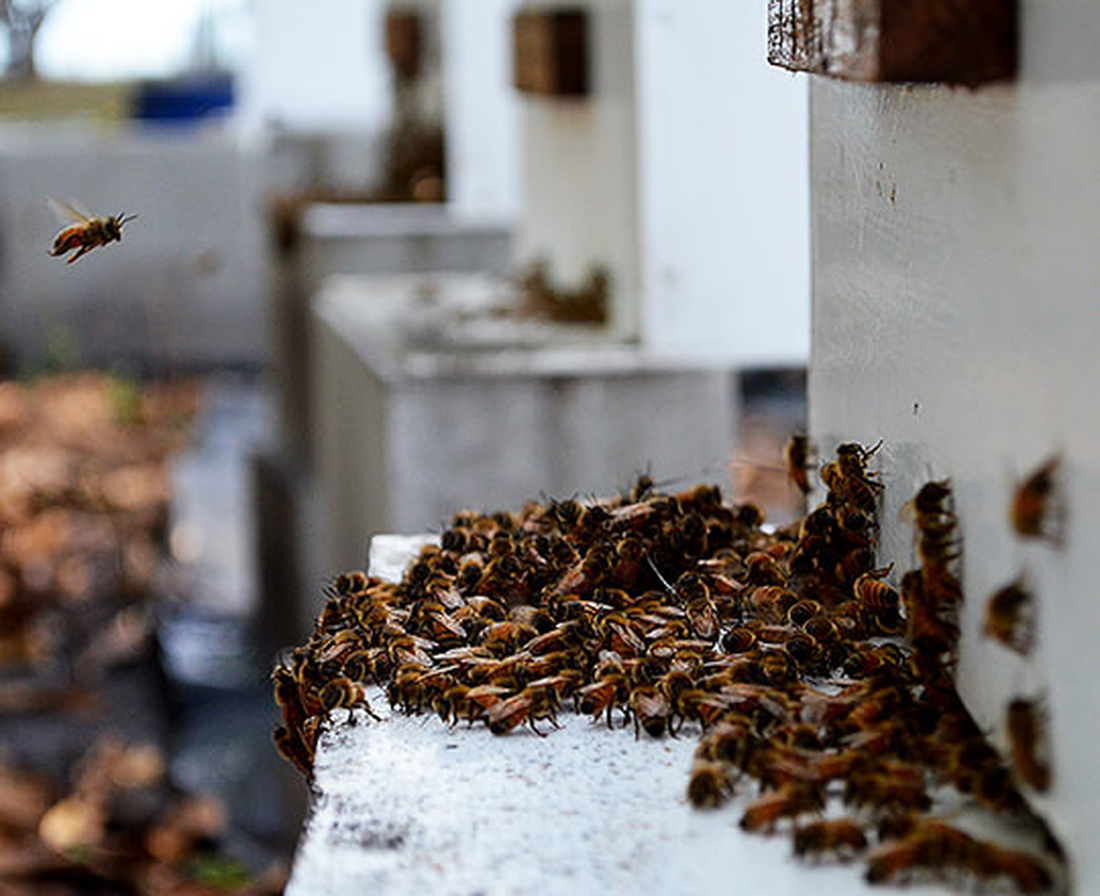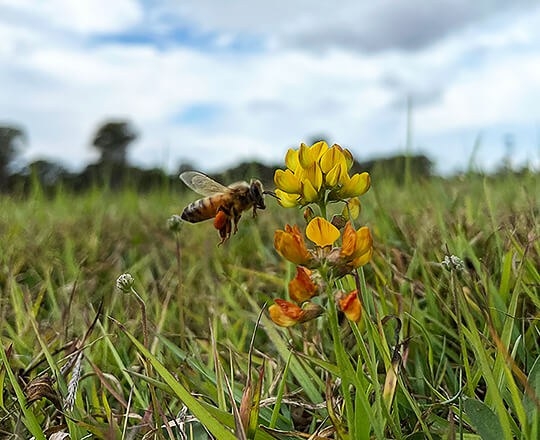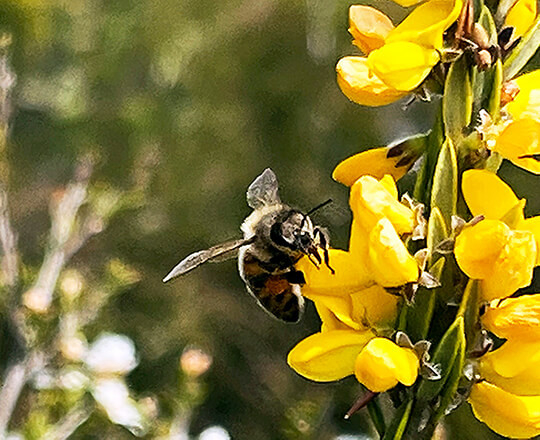Our universe is full of hidden languages, but most people don’t notice or think to listen out for them. Spider webs tell you a path is less travelled, the roar of the stream tells you something upstream is moving towards you, ants tell you the rain is coming as they build their nests higher, and bees, well, they have a lot to say. Not just giving us yummy and healthy raw honey.

An increasing hum on a hot day
We sit outside the hive and listen to the relaxing, ever-so-low hum on a warm spring morning. As the day warms up, we notice the change in the bees’ humming because their wings are working overtime to fan and cool the hive to an optimal temperature. The water hauling bees will also collect water and fan it to help cool the hive on very hot days. Plus, they will start to kick bees out and ‘beard’ the front of the hive to reduce the heat. We at Goodwood Produce, also use Bluebee Boards to help ventilate their hive, making it easier for the bees to regulate the temperature of the hive.
A change in pitch when harvesting
When harvesting your bees, it is important that you listen to what they are saying to you. For example, there’s a change in pitch as we intrude to harvest their honey, and this is where smoking your hive is important. It is not for you that you smoke the bees, it is for them, as it keeps them calm, stops them from getting mad and wanting to sting you and most likely die (you have a bee suit on; it will not hurt you, only them). So when you start to hear an increase in pitch, it is the bees telling you that they are no longer calm and you need to attend to them.

Bee dance
We’re also fascinated to watch as the scouts return to the hive, after discovering new nectar and pollen sources, and perform a dance near the entrance letting the other bees know the distance and direction of the source.

Colours of pollen
If you look closely at a bee that has been out collecting, you will see a cluster of pollen on the legs of the bee. This pollen is collected by bees when going from flower to flower, and the colours will change depending on what type of flower the bee has been to. If the pollen is placed under a microscope, the plant that the bee visited can be identified. The colour of pollen can range from white, blues, greens, yellows and reds to name a few; so next time you see a bee that has been working hard, take the time to appreciate the pollen on its legs.
Passed on from beekeeper to beekeeper.
In some cultures (introduced to us by a good friend whose family did this with their bees), it is believed that when a beekeeper passes on, it is important for the new beekeeper to sit down with the bees and let them know that their keeper has passed away; and that they are going to be ok because you will be looking after them. Here is a copy of the poem that was given to us so we could inform the bees that sadly Johnny had passed away and his beloved bees would be ok. This was also done recently by the Royal beekeeper for the Queen’s bees.
Time to tell the bees
Who among us will tell the bees, the honey-hoarder will not leave
Holed up deep within his hive, a brooding lump by all despised
But for the few who fill his head, with lies of victory instead
They cannot hide the sting of truth, surely they know they’ve seen the proof
Alas, a new bee-keeper waits, his calm voice speaks of love not hate
In empathy he rends his heart, he understands us every part
And promises to heal our soul, to care for us, his only goal…
Who will tell the bees it’s done, disgrace has lost, decency’s won
So they won’t leave us, so they’ll stay, to fill our honey jars of clay
To fill our lives with sweetness too, with all that’s good and right and true
-Kat

We all die if bees become extinct.
For such a small animal, it carries a lot of weight on its shoulders in regards to human survival. We, all of us, owe it to the bees and ourselves to sit and listen to their hidden language.
Conclusion
All these hidden conversations keep us intrigued as the bees go about their business playing a major role in maintaining biodiversity, collecting honey for our consumption and medicinal purposes, and helping to ensure the survival of many plants upon which all of us rely for our own survival. Appreciate their awesomeness, and the benefits of raw honey for humans. Want to know more about bees, honey and other bee-related intrigue? Then check out our bee diary or follow us on Facebook to stay up-to-date and entertained.

